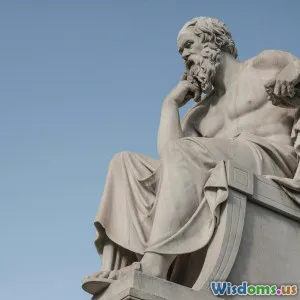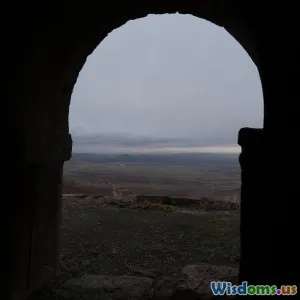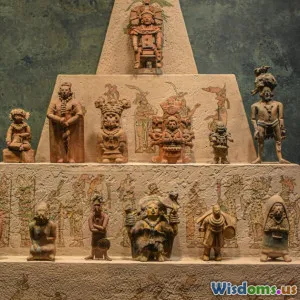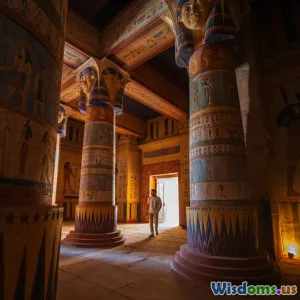
Top Five Radical Teachings from Socrates That Still Shock Today
7 min read Explore five groundbreaking teachings of Socrates that continue to challenge modern thought and inspire deep reflection. (0 Reviews)
Top Five Radical Teachings from Socrates That Still Shock Today
Socrates, the enigmatic classical Greek philosopher, is often considered the father of Western philosophy. Over two millennia after his life and controversial death, his teachings remain alive—continually challenging, provoking, and inspiring modern thought. What makes Socrates truly revolutionary is not just his devotion to wisdom, but how radically he approached it, shaking the foundations of societal norms and individual beliefs.
In this article, we explore five of Socrates' most radical teachings that still shock and resonate deeply with today’s seekers of spiritual and philosophical truth.
1. The Wisdom of Knowing One’s Ignorance
Socrates famously declared, “I know that I know nothing.” On the surface, this statement sounds paradoxical: how can claiming ignorance be considered wisdom?
This radical teaching centers on epistemic humility—the idea that true wisdom begins with recognizing the limits of one’s knowledge. Rather than pretending to have all the answers, Socrates urged individuals to engage in constant questioning and open-minded inquiry.
Example & Impact: This concept is foundational in modern critical thinking and scientific inquiry, where the admission of uncertainty and the rejection of dogma fuel progress. In spirituality, this humility fosters openness and surrender, often seen as prerequisites for genuine inner growth.
2. Virtue Is Knowledge
Socrates made the extraordinary claim that virtue is a form of knowledge. Unlike prevailing thoughts that virtue was a trait bestowed by gods or one developed by practice alone, Socrates believed that ethical behavior results from understanding what is good.
He argued that people do wrong only out of ignorance, as truly knowing the good would naturally lead to acting rightly. This challenges contemporary ideas that morality is subjective or enforced externally.
Real-World Insight: This teaching informs modern ethical philosophy and education, emphasizing moral reasoning’s significance. It also invites us to contemplate ethics as an attainable wisdom anyone can study rather than a mysterious virtue reserved for few.
3. The Unexamined Life Is Not Worth Living
During his defense at his trial, Socrates boldly stated, “The unexamined life is not worth living.” This was a challenge to complacency and conformity, urging people to scrutinize their values, beliefs, and choices continuously.
The call to self-examination was radical because it placed the responsibility of meaning and morality squarely on individual reflection rather than tradition or external authority.
Quote: Philosopher Karl Jaspers described Socrates’ statement as "the most tragic and heroic motto in the history of mankind." Its enduring impact can be seen in therapeutic traditions and spiritual paths that prioritize self-awareness as the path to freedom.
4. Questioning Authority & Conventional Wisdom
Socrates’ method was dialectical—through questioning assumptions, he exposed ignorance beneath purported knowledge. This approach was profound and radical in an era where challenging political, social, and religious authorities could lead to grave consequences.
His relentless questioning disrupted the Athenian status quo, contributing to both his fame and eventual execution.
Contemporary Relevance: In modern times, questioning authority is central to democratic dialogue, scientific progress, and social justice movements. Socrates' courage encourages individuals to critically assess received wisdom rather than passively accept tradition.
5. The Soul’s Immortality and Moral Accountability
Unlike many contemporaries, Socrates proposed a deep concern for the soul, believing it was immortal and that moral decisions affect its state beyond physical life. This philosophical spirituality underscored personal responsibility not only for earthly actions but for eternal consequences.
Though not detailed in rigid dogma, this teaching introduced a profound spiritual dimension to ethics and life purpose.
Insight & Examples: Socrates’ belief resonates with many world religions and modern spiritual teachings that emphasize cultivating inner virtue and integrity as preparation for life beyond the material existence. It calls individuals to live consciously and morally, embracing accountability as a spiritual imperative.
Conclusion: Why Socrates Still Shocks & Inspires
Socrates’ teachings continue to shock us because they cut against the grain of comfortable assumptions—challenging knowledge claims, moral complacency, unquestioned authority, and materialistic views of life.
His insistence on relentless questioning, ethical knowledge, and soul care forces deep reflection and sometimes discomfort. Yet, it also lights the way toward a more conscious, virtuous, and meaningful existence.
In an era flooded with information but often starved of wisdom, Socrates’ radical insights remain not only relevant but essential. Embracing his teachings invites each of us to embark on our own journey of inquiry, humility, and moral awakening.
As many continue to discover, the greatest shock of all may be realizing that in recognizing our ignorance, we might just unlock the door to true wisdom.
“Wisdom begins in wonder.” — Socrates
Rate the Post
User Reviews
Popular Posts


















